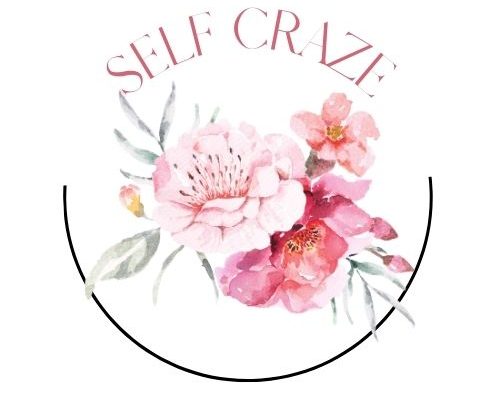Contentment, which is sometimes confused with happiness, is the condition of being at peace with oneself and one’s life, no matter what.

Compared to happiness, which is occasionally transitory and dependent on external circumstances, contentment is more fundamental and durable. Rather than
It is about accepting the present, being grateful for what you have, and finding satisfaction in the here and now rather than constantly striving for more or desiring for what is out of reach.
Finding true contentment can seem challenging in a world where rivalry, wealth, and external validation are the main motivators.
People usually find themselves in a never-ending cycle of comparison, looking for more achievements, recognition, or material belongings to fill the gap.
True contentment, however, cannot be bought or acquired from sources other than oneself. It is an approach to thinking and acting that must be cultivated from the inside out.
This article explores ten essential and practical methods for creating true life satisfaction. These actions can assist you in developing a stronger sense of inner peace, thankfulness, and fulfillment no matter what life throws at you.
How to Be Content in Life?
1. Show gratitude Everyday
Gratitude is one of the best methods for reaching contentment. It assists you in concentrating on your possessions rather than your shortcomings.
By just acknowledging the good things in your life, you can reprogram your brain to perceive abundance rather than scarcity, leading to a better
a positive outlook on life.
You become more aware of all the blessings in your life, no matter how small, when you are grateful.
This appreciation allows you to enjoy the present rather than constantly dwelling on your shortcomings or things you wish you could change.
The practice of thankfulness teaches you to discover joy in the small things, whether it’s a kind comment from a friend, a breathtaking sunset, or even a challenge that challenges you to grow.
Actionable Step:
As a practical step, start a gratitude journal each day. Every night, write down three things for which you are grateful. Small gestures of generosity or small joys don’t need to be big or life-changing to make a big difference. Over time, you can reframe your perspective by making contentment your primary attitude.
2. Give Up Comparing
Comparing ourselves to others is one of the biggest barriers to contentment. We are continuously exposed to pictures of people who seem happier, wealthier, or more successful than we are through social media, ads, and social pressures.
We lose our own happiness and contentment as a result of this comparing habit since we begin to feel that what we have is inadequate.
In actuality, contentment is stolen by comparison. Everybody has a different route, complete with opportunity, obstacles, and timing.
You might not benefit from something that works for someone else, and vice versa.
Focus on your own development and what makes you happy rather than comparing your achievement or value to that of others.
Actionable Step:
Spend less time on social media, particularly if it makes you feel inferior or envious. Instead of spending time on platforms that make you feel inadequate, take some time to consider your own accomplishments.
Honor your accomplishments, no matter how minor, and never forget that your value is not based on how you compare to other people.
3. Focus on the Here and Now
Contentment lives exclusively in the moment and cannot be found in the past or the future.
Many people are unable to truly experience the present because they spend their lives worrying about the future or lamenting the past.
But the only time you have any control over is right now. Instead of waiting for some future event to bring you satisfaction, you can learn to appreciate life as it unfolds by practicing living in the present.
Being in the now is being aware of your surroundings, emotions, and experiences as they come up. It incorporates mindfulness, a method that helps one find peace in the middle of chaos and focus oneself.
When you live consciously, you can find joy and satisfaction in even the simplest things.
Actionable Step:
To develop mindfulness, practice meditation or contemplative activities. Whether you’re eating, walking, or simply sitting quietly, pay attention to your breathing, your senses, and your immediate surroundings.
Every time your mind wanders to the past or the future, bring it back to the here and now. Over time, this practice will help you reach a deeper degree of peace and contentment.
4. Make Life Easier
In our society, more is always better. We are taught that the more possessions we have, the more success we achieve, and the more responsibility we assume, the happier we should be.
However, this way of thinking usually leads to stress, overwhelm, and discontent. We may feel less satisfied when we aim for more.
Simplifying your life is to reduce the unnecessary distractions that prevent you from enjoying the things that truly matter.
It’s about clearing away the physical and mental clutter that adds stress to your life. By focusing on the things that bring you joy, fulfillment, and relaxation, you create space for contentment.
Actionable Step:
To begin, simplify one area of your life. This could be your home space, your digital surroundings, or even your daily schedule. Give up commitments or things that no longer serve your interests.
Put quality before quantity in your time, relationships, and belongings. Making life simpler and focusing on what matters will make your life more fulfilling and meaningful.
5. Recognize and accept your imperfections
One of the most prevalent obstacles to contentment is perfectionism.
Many individuals think that in order to be truly happy, they need to attain perfection in their lives, whether it be in their accomplishments, relationships, occupations, or beauty. But perfection is an impossible ideal.
The never-ending pursuit of perfection simply breeds annoyance, tension, and discontent.
You have to learn to accept imperfection if you want to be happy. Life is messy, full of ups and downs, and unpredictable.
Finding contentment and happiness amid defects is more important than striving for a flawless life. You can let go of irrational expectations and find satisfaction in the now by acknowledging that you and life are completely flawed.
Actionable Step:
Take action by practicing self-compassion. Remind yourself that it’s acceptable to be flawed the next time you make a mistake or don’t live up to your expectations.
Show yourself the same consideration and compassion that you would show a friend. Give up the impulse to be in charge of everything and accept your humanity.
The first step to contentment and inner serenity is accepting one’s imperfections.
6. Foster Deeply Meaningful Connections
The quality of your relationships directly affects how satisfied you are. Because we are social beings, we get love, support, and a sense of belonging from having close relationships with other people.
However, satisfaction is not the outcome of every relationship. You can lose vitality and feel lonely or unfulfilled in relationships that are toxic or superficial.
Finding relationships that give your life meaning, happiness, and support is essential to reaching ultimate contentment. Being with people that accept, encourage, and support you for who you are is necessary to achieve this.
Quality is more important in relationships than quantity. Even if you only have a few close, important relationships, you can still feel like you belong and are part of the community.
Actionable Step:
Assess your relationships. Do any appear poisonous or draining? Consider setting boundaries or cutting off relationships with those who don’t contribute to your well-being.
Try to improve your relationships with the individuals who matter most to you. Make time to connect and be present with friends and loved ones when you’re with them.
Building meaningful relationships will make you feel happier and more contented.
7. Pay Attention to Your Achievements and Strengths
We have a tendency to focus on our shortcomings, shortcomings, and unmet objectives.
This propensity for self-criticism can lead to feelings of inadequacy and discontent. As an alternative, focus on your strengths and achievements. Taking note of your unique skills and
Contributions foster a sense of self-worth and fulfillment.
Focusing on your strengths makes you feel secure and proud of your abilities.
It’s more crucial to value your unique qualities and successes than to ignore your growth potential.
You can develop a stronger sense of self-worth and contentment by recognizing your strengths.
Actionable Step:
List your accomplishments, skills, and strong points. Think back to instances where you overcame obstacles or positively impacted people.
Use this list as a reminder of your value whenever you begin to feel unworthy. Appreciate the road you’re on and acknowledge your accomplishments, no matter how minor. You’ll develop satisfaction and self-confidence with this practice.
8. Put Your Health and Well-Being First
Maintaining one’s physical, emotional, and mental health requires self-care.
You are exhausted, anxious, and more likely to be unhappy when you disregard your own needs. Prioritizing self-care, on the other hand, demonstrates to yourself that you are deserving of love, care, and attention.
Self-care is essential to maintaining a happy and healthy life; it is not selfish.
Self-care helps you refuel and maintain equilibrium, whether it’s taking time for yourself, doing things that make you happy, or establishing limits to safeguard your energy.
Contentment comes easily when you are in a state of high bodily and emotional health.
Actionable Step:
Make self-care a part of your everyday schedule. Exercise, reading, or meditation are examples of mental relaxation techniques; journaling or spending time with loved ones are examples of emotional self-care techniques.
Make time each day to engage in physical, mental, and spiritual nourishment.
Making self-care a priority will assist you in keeping your life in balance and content.
9. Establish Meaningful and Achievable Objectives
For personal development and fulfillment, it is crucial to have objectives and aspirations. However, frustration, tension, and dissatisfaction can result from establishing unattainable or unreasonable goals.
Setting objectives that are both achievable given your current situation and consistent with your values is crucial.
Setting relevant and attainable goals gives you direction and a sense of purpose without putting undue strain on yourself.
Reaching your objectives, no matter how minor, makes you feel satisfied and accomplished.
The progress you make along the route is just as important as the final product. You allow yourself to be content along the way when you concentrate on the process rather than just the end goal.
Actionable Step:
Make sure your objectives are reasonable and consistent with your values by reevaluating them.
Divide more ambitious objectives into more doable, smaller steps, and acknowledge your accomplishments as you go.
Remember that growth is the path to fulfillment and that it is the journey rather than the destination.
You will feel fulfilled and have a sense of purpose when you set significant goals.
10. Show kindness and give back
Acts of giving and kindness are among the most rewarding methods to discover contentment.
Giving to others fosters a sense of purpose and connection, whether it is with resources, time, or assistance.
Assisting others helps you remember the good influence you can have on the world and takes your attention away from your personal issues.
Being generous improves your own sense of wellbeing in addition to the recipient’s. Research has demonstrated that deeds of generosity and kindness boost emotions of contentment and satisfaction.
You cultivate an appreciation for what you have and experience a greater sense of contentment when you give back.
Actionable Step:
Look for opportunities to help those in need or give back to your community. Acts of kindness can have a positive impact on your life, whether you choose to volunteer, donate to a cause, or lend a friend a helping hand.
You’ll feel more connected, fulfilled, and purposeful the more you donate.
In conclusion
Instead of being a destination you reach, contentment is a state of mind that you cultivate via your choices and behaviors.
By putting these ten strategies into practice, you can find more contentment and serenity: being grateful, letting go of comparisons, living in the present, and simplifying your
life, embracing flaws, developing deep connections, focusing on your advantages, giving back, emphasizing self-care, and establishing realistic goals.
True satisfaction includes embracing life as it is, enjoying the little things, and appreciating life as it is.
It’s not about waiting for external circumstances to change; rather, it’s about changing your viewpoint and choosing to be happy where you are.
The more you put these ideas into practice, the more you’ll realize that contentment is something you make for yourself rather than something you find.
You can develop a life of genuine fulfillment, inner peace, and enduring delight by concentrating on what really matters, letting go of pointless distractions, and living in accordance with your principles.







